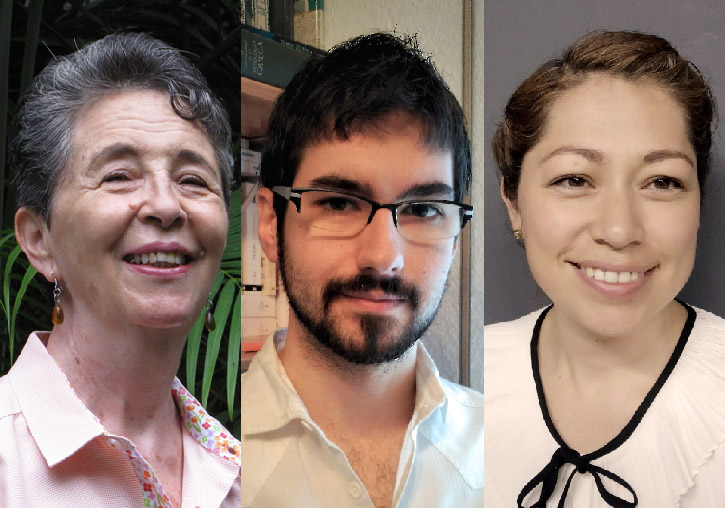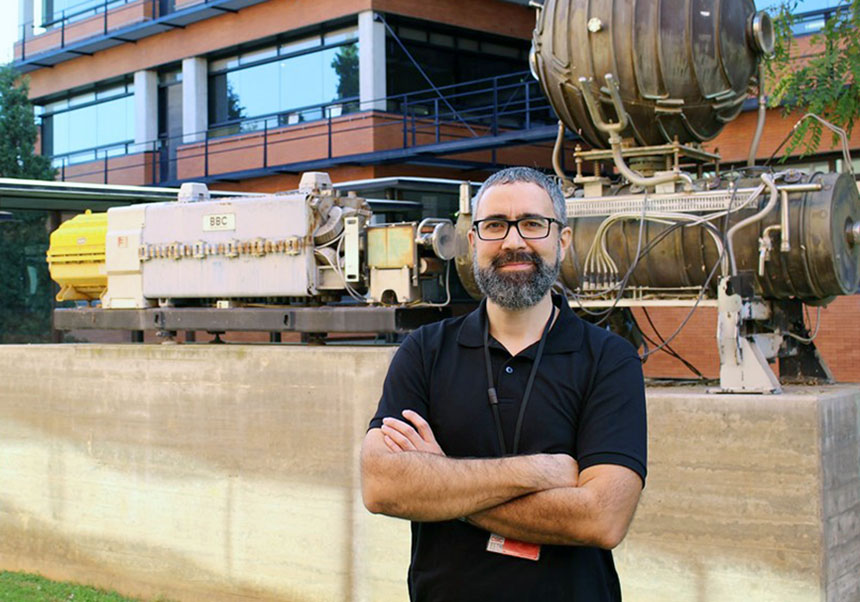They propose University programs based on “Learning to Learn” proposed for the labour market of the fourth Industrial Revolution
- Scientific Culture and Innovation Unit
- May 24th, 2021

Researchers of the University of Valencia (UV) point out that in the face of the changes produced by the 4th Industrial Revolution (4IR) in the labour market, universities should promote a new knowledge: “Learning to Learn”, that is to say that the student body develops skills such as decision-making, creative thinking, and problem solving. Along with this, they propose to improve educational environments through innovative didactic methods, such as Service-Learning (SL).
The rapid process of transformation that society is experiencing is characterised by a constant flow of information, a constant pressure for immediacy and change, and the forced need to adapt routines. This phenomenon challenges universities, and compels them to design new teaching programs. An update process that gives way to 4.0 universities.
“Universities that train people for the 4RI would do well not to limit themselves to specialised learning in certain disciplines but to teach students to make decisions about their learning process and their goals in the future”, explains Fran J. García-García, researcher in training at the Faculty of Philosophy and Educational Sciences and one of the authors of the study Aprender a aprender en universidades 4.0. Obsolescencia humana y cambio a corto plazo (‘Learning to learn in 4.0 universities. Human obsolescence and short-term change’). Also participating in the research are Teresa Yurén, from the Autonomous University of the State of Morelos (Mexico), and Evelyn Moctezuma, a doctoral student at the UV, in agreement with the Autonomous University of the State of Morelos (Mexico).
In simple words, those who Learn to learn (LtL) will know how to learn in the face of work and life situations that will require mastery of this competence. “It is a stable knowledge and not short-term”, says García-García, from the Department of Theory of Education. “Therefore, people who are competent in LtL are expected to be autonomous and effective throughout their learning process to work well.”
As the world undergoes rapid change, people face the uncertainty of not knowing what their future will be. Hence, they cannot anticipate what their ‘job’ will be in the future. Then, as it is not possible to train for a ‘job’ that they do not yet know, the need arises to adapt, in other words, to a new knowledge: Learning to Learn.
“Higher education systems should provide adequate training for long-term human development”, says García-García. “That is, an education for life and not just for work.”
In this sense, a second need arises, which is to improve academic environments. For this, the researchers propose strategic measures and for the management of the institutions, together with cutting-edge methods for teaching and an active learning character for students. One of these measures is Service-Learning (SL).
“The students learn the procedures to negotiate the realities and decide a course of action, of influence, in their communities”, indicates Professor García-García. “In these extra-university settings, students who learn to learn break with institutional dependency to update their knowledge, adapt to the social systems of the 4IR and influence their communities through work.”
Ultimately, it is about academic programs not only connecting students with relevant companies in the labour sector that best suit their training profile, but also that 4.0 universities keep track of the entrepreneurial activities of their students, for profit or not, and always for the benefit of communities beyond markets.
4IR and middle class
The researchers explain that the 4th Industrial Revolution (4IR) suggests a new social stage in which the economy is based on producing knowledge and introducing it to the system. An example of this is that the Internet and social networks have created open social spaces that potentially connect almost everyone on the planet.
In these conditions, adapting is becoming part of the digital society. Otherwise, you run the risk of being left out of economic activity and even out of the social system. Well, one of the spaces where this phenomenon is most notorious is in the labour world.
“In today’s industry, Artificial Intelligence (AI) could be replacing the middle class to cover most of the upper-middle-skilled jobs”, says García-García.
Hence the focus is on the decline of the middle class, an unwanted effect of the 4IR. The authors warn that this reduction in the middle class not only puts social mobility at risk, but also consolidates social inequality and produces political polarisation and distrust in governments and markets.
Article: García-García, F. J., Moctezuma-Ramírez, E. E. and Yurén, T. (2021). Aprender a aprender en universidades 4.0. Obsolescencia humana y cambio a corto plazo. Teoría de la Educación. Revista Interuniversitaria, 33(1), 221-241. https://doi.org/10.14201/teri.23548















